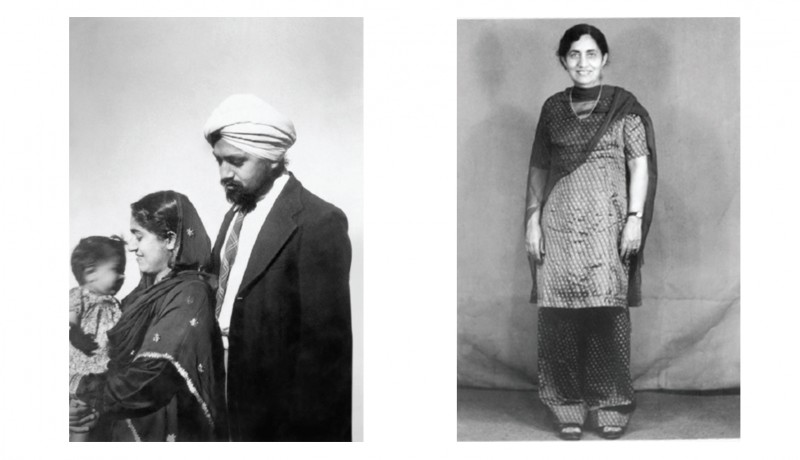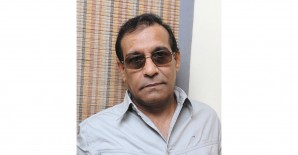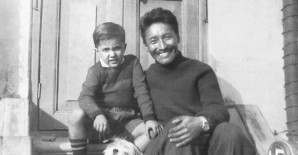
Columns

Though Independence brought joy to millions, for many, like Bansi Singh, it is still associated with the trauma of Partition
It was on 13 August 1947 that I lost my roots, my roof, and my home. We had to lock up our new home and my husband’s medical practice in Lahore—a city of beautiful gardens—and walk out in five minutes, leaving behind all our possessions. With killings and fires raging outside, we had to literally run for our lives, never to set foot again in my home—my country India had been divided and ripped apart by Partition.
As the car in which we were travelling reached the main road, we were surrounded by a mob. Fortunately, someone recognised my husband’s uncle as the doctor who had saved his eyes. So we were spared. We drove fast and reached the border town of Amritsar on the Indian side—a short journey in terms of distance, but longer in moments of angst and trauma.
Incidentally, I had been brought up in a happy and congenial environment, with a loving family, school, teachers, friends and surroundings. Growing up, I had a wonderful time. Later, I graduated, got married and had a son. My son was just five months old when the shock of Partition hit us.
On reaching Amritsar, we learnt that those who travelled by train had not reached alive. All of them—men and women, old and young—had been butchered. Not a single soul was left alive. People travelled in groups by foot or whatever means of transport they could find, fearing attack by frenzied mobs.
So many people lost their families besides everything else. It was heartbreaking to hear the cries and heartrending stories of those who had suffered and faced the killings of their loved ones and suffered the shame of their womenfolk—young girls were brutally raped and killed in front of their eyes and thrown into the fields. A lucky few families were helped and hidden by kind Muslim friends.
Those who reached this side of the border were in a miserable state with many severely injured. They had lost everything, including homes, properties, possessions, happy lives, self-respect, dignity and honour. They were physically, mentally, emotionally and financially shattered. Many were separated from their families and had no idea of what the future held for them. But still we found support and much needed love and care from relatives, friends and even completely unknown people on this side of the border.
The days and nights spent in Lahore just before Partition were also terrible. We were cooped up at home as it was dangerous to step out. One couldn’t even have fresh food and lived mainly on tinned food, which became available after the leftover war stocks came in. We lived in constant fear as shops and houses around us were being attacked and burnt. Fires were raging day and night, with tall flames touching the skies. People were being stabbed in cold blood on the roads and streets. The police was nowhere to be seen. Instead, the men in our neighbourhood took it upon themselves to guard our homes with whatever arms—guns, pistols, swords—they could find.
It was in the midst of such a distressing situation that our son was born on 12 March 1947. Despite my husband being a doctor, it was with great difficulty that we found an ambulance to take me to the hospital.
Things were going from bad to worse when, one day, my brother-in-law, a senior railway officer, who was living in a safe locality, called to say that we should move there as our home wasn’t safe. As we stepped out, we saw our car burning, so we quickly went back and rang him up. He sent us a police car with police escorts and we found a few days of peace in his house. When we returned home, it was obvious that we wouldn’t be able to live there any longer. A couple of days later, on 13 August, we finally left, never to return.
Meanwhile, we lost touch with our families. It was traumatic not knowing where and in what state they were. My father was based in Karachi. Later, we discovered that he took a flight to Bombay. He literally cried with relief when he discovered that we had reached Amritsar safely.
With hordes of people arriving, Amritsar became the centre of action. Crowded trains with people perched on rooftops were seen leaving Amritsar. They headed to different places to find help and start life anew. Fortunately for us, my husband found a job at Safdarjang Hospital in Delhi with a large and beautifully furnished accommodation, helping us to start anew with hopes in our hearts. We were grateful to God that we could stand on our own feet soon enough and pick up the threads of life from scratch, even after going through the trauma and upheaval of Partition. I was also reunited with my parents and siblings in Delhi.
This is just a little part of my story. Even after decades, the whole scene is still vivid in front of my eyes. And even today, my wish of visiting my roots remains a distant dream.
Ninety-three year-old Singh is the author of Khiddo, a book of poems in Punjabi
Featured in Harmony — Celebrate Age Magazine August 2018
you may also like to read
-
Mental workout
Mukul Sharma tells you how to keep those grey cells ticking Everyone will ultimately lose his or her brain….
-
Helpline
Dr Harshbir Rana answers your queries on personal and social issues related to ageing, elder care and intergenerational relationships ….
-
Off the cuff
Raju Mukherji pays tribute to his first hero, Tenzing Norgay, an exemplary mountaineer Darjeeling, 1955. Dr ‘Pahari’ Guha Mazumdar….
-
Yoga RX
Shameem Akthar shows ways to control debilitating ankle pain through regular practice Ankle pain is so common and prevalent….







